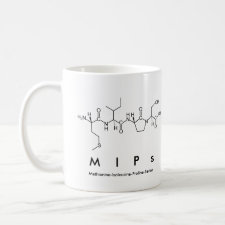
Authors: Ishkuh FA, Javanbakht M, Esfandyari-Manesh M, Dinarvand R, Atyabi F
Article Title: Synthesis and characterization of paclitaxel-imprinted nanoparticles for recognition and controlled release of an anticancer drug.
Publication date: 2014
Journal: Journal of Materials Science
Volume: 49
Issue: (18)
Page numbers: 6343-6352.
DOI: 10.1007/s10853-014-8360-7
Abstract: Imprinted nanoparticles as drug delivery carriers have been considered because owing to their cross-linked network, they act as the drug reservoir for controlled release. In this study, selective MIPs nanoparticles of paclitaxel (PTX) were successfully developed for application in the biological molecular recognition and in the design of new anticancer drug delivery systems. The MIPs nanoparticles prepared by miniemulsion polymerization technique using methacrylic acid (MAA) and methyl methacrylate as non-covalent functional monomer, ethylene glycol dimethacrylate and trimethylolpropane trimethacrylate (TRIM) as cross-linker agent, azobisisobutyronitrile as initiator, and hexadecane as hydrophobic agent. In order to prepare of MIP nanoparticles, the synthesis conditions and effective parameters, such as: cross-linker agent, different molar ratios of template-functional monomer-cross-linker agent, were investigated. In addition, the effect of different molar ratios of template and monomers on polymers binding and morphology were characterized. Structure and thermal properties of MIPs were confirmed by FT-IR spectroscopy and thermogravimetric analysis. Imprinted nanoparticles showed significant drug loading and encapsulation efficiency, 17.8 and 100 %, respectively. The particle size of MIP nanoparticles varies between 187 and 726 nm, according the SEM images and laser light scattering data. The imprinted nanoparticles showed satisfactory affinity (84 %) to PTX with a binding of 12 times higher than non-imprinted nanoparticles in biological samples when MAA and TRIM were used as functional and cross-linker monomer, respectively. Results from release experiments of MIPs showed a very slow and controlled release of PTX which would be helpful for sustained drug delivery
Template and target information: paclitaxel, PTX



Join the Society for Molecular Imprinting

New items RSS feed
Sign-up for e-mail updates:
Choose between receiving an occasional newsletter or more frequent e-mail alerts.
Click here to go to the sign-up page.
Is your name elemental or peptidic? Enter your name and find out by clicking either of the buttons below!
Other products you may like:
 MIPdatabase
MIPdatabase









